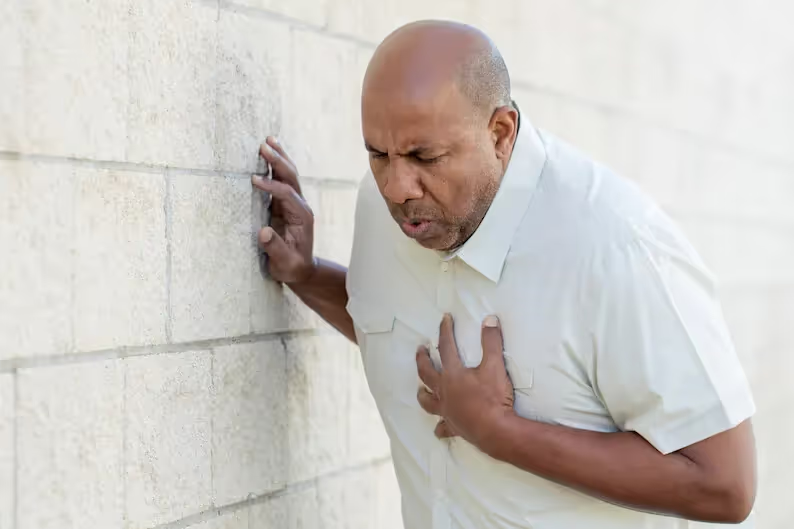It's about the size of your fist. It pumps about 2,000 gallons of blood a day. And it beats about 100,000 times in 24 hours. Your heart is a pretty powerful organ. It keeps your body running smoothly without incident. So, it can be scary when it begins to have difficulty doing its job.
According to the CDC, about 805,000 people in the United States have a heart attack every year. Of these, 605,000 are a first heart attack, and 200,000 happen to people who have already had a heart attack. About half of heart attack sufferers die.
Television and movies make heart attacks seem so simple and straightforward. For example, an older man begins having chest pains. He clutches his chest, grimaces, and drops to his knees. Although this scenario and image can occur, heart attacks are rarely that simple, especially when it comes to heart attacks in older adults.
Heart Disease in Older Adults
Adults aged 65 and older are more likely than younger people to suffer from some form of heart disease. This is because aging alone changes the heart and its ability to function properly. This increases your risk for heart disease and your chances of suffering a heart attack.
A heart attack occurs when an artery that sends blood and oxygen to the heart becomes blocked. Coronary heart disease is the number one cause of a heart attack.
"Most people with coronary artery disease have no symptoms," said VIPcare Ft. Myers provider Dr. Julia Belanger. "We know the leading causes of clogged arteries: high blood pressure, high cholesterol, obesity, diabetes, and smoking."
This is why keeping track of your numbers and discussing your risk factors with your provider is vital. In addition, you should also know what signs and symptoms could indicate that you're experiencing a heart attack.
Heart Attack Symptoms in Older Adults
As previously stated, it's not as simple as just having chest pains. Many older adults who have heart attacks experience very different symptoms or symptoms that aren't as obvious. Some people don't even have symptoms. In fact, many adults suffer permanent heart damage because they either don't get help quickly enough or don't even know they're having a heart attack.
Here are some of the more common symptoms of heart attacks that you should watch out for.
Chest Discomfort – This can present itself in many different ways. It can be as simple as chest pain and pressure that won't go away. Or it can also feel like a burning fullness deep within your chest. But, again, not everyone experiences severe chest pains when having a heart attack. And those with diabetes may have an impaired perception of chest pain, thus not even realizing that they have chest pain.
Pain in Other Parts of the Body – Discomfort in your back, shoulders, arms, neck, or jaw is also common during a heart attack. This is your heart's way of calling for help. If you have a blocked artery, this can trigger the nerves in your heart to signal that something is wrong. This is very common in women, but the pain is usually brushed off as nothing, just everyday aches and pains.
Shortness of Breath – Shortness of breath is one of the most common heart attack symptoms in older adults. However, it also depends on what you're currently doing. For example, if you're walking up a flight of stairs, there is reason to be short of breath. But if you're sitting on the couch watching television and find you're trying to catch your breath, that could be a sign your heart is in danger.
Nausea or Upset Stomach – The back and bottom of your heart have nerves that reach your abdomen. This can cause gastrointestinal symptoms, such as indigestion, to occur during a heart attack. But, again, this symptom is often brushed off as being just an upset stomach, heartburn, or acid reflux.
Fatigue – When your heart struggles to pump blood, it can make you feel worn out and fatigued. This can happen months before you have a heart attack, so you definitely should watch for any differences in your body and energy levels.
Be Heart-Healthy by Taking Control with Prevention!
When it comes to heart disease and heart attacks in older adults, it's all about prevention and lowering your risk.
"Nowadays, your primary care doctor can calculate your 10-year-risk of having a heart attack or stroke," said Dr. Belanger. "All they need is your age, sex, blood pressure, cholesterol, sugar level, and smoking history. Together, you can modify your lifestyle or add any medications needed to lower your risk of heart disease."
For older adults, living a long and healthy life is dependent on heart health. If your ticker is struggling, you're in trouble. You don't want to wait until it's too late. Watch for signs or anything out of the ordinary when it comes to your heart and your overall health.
"Don't wait to develop any shortness of breath, discomfort in the chest, arms, back, neck, jaw, or stomach," said Dr. Belanger. "If you have any of those, talk to your doctor immediately. Avoid a future of taking a long list of medications. Ask your doctor today how to lower your risk of heart disease, high blood pressure, and diabetes."




